Filter by

Healing Magic and Evil Demons. Canonical Udug-hul Incantations
This book brings together ancient manuscripts of the large compendium of Mesopotamian exorcistic incantations known as Udug.hul (Utukku Lemnutu), directed against evil demons, ghosts, gods, and other demonic malefactors within the Mesopotamian view of the world.It allows for a more accurate appraisal of variants arising from a text tradition spread over more than two millennia and from many anc…
- Edition
- -
- ISBN/ISSN
- 9781614513094
- Collation
- -
- Series Title
- -
- Call Number
- -

Converts of Conviction
The series Studies and Texts in Scepticism contains monographs, translations, and collected essays exploring scepticism in its dual manifestation as a purely philosophical tradition and as a set of sceptical strategies, concepts, and attitudes in the cultural field - especially in religions, perhaps most notably in Judaism. In such cultural contexts scepticism manifests as a critical attitude t…
- Edition
- -
- ISBN/ISSN
- 9783110530797
- Collation
- -
- Series Title
- -
- Call Number
- -

Contesting Religion
As Scandinavian societies experience increased ethno-religious diversity, their Christian-Lutheran heritage and strong traditions of welfare and solidarity are being challenged and contested. This book explores conflicts related to religion as they play out in public broadcasting, social media, local civic settings, and schools. It examines how the mediatization of these controversies influence…
- Edition
- -
- ISBN/ISSN
- 9783110502060
- Collation
- -
- Series Title
- -
- Call Number
- -
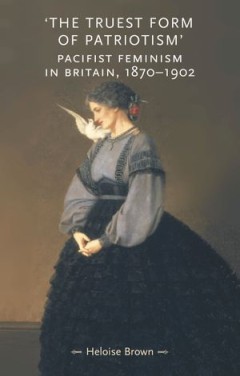
'The Truest Form of Patriotism' Pacifist feminism in Britain, 1870-1902
This fascinating book explores the pervasive influence of pacifism on Victorian feminism. Drawing on previously unused source material, it provides an account of Victorian women who campaigned for peace and the many feminists who incorporated pacifist ideas into their writing on women and women's work. It explores feminists' ideas about the role of women within the empire, their eligibility for…
- Edition
- -
- ISBN/ISSN
- 9781526137890
- Collation
- -
- Series Title
- -
- Call Number
- -
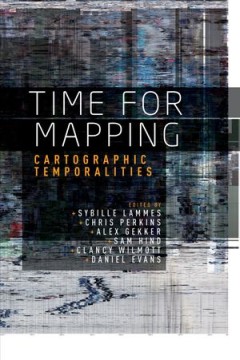
Time for mapping
"The digital era has brought about huge transformations in the map itself, which to date have been largely conceptualised in spatial terms. Novel objects, forms, processes and approaches have emerged and pose new, pressing questions about the temporality of digital maps and contemporary mapping practices: in spite of its implicit spatiality, digital mapping is strongly grounded in time. This co…
- Edition
- -
- ISBN/ISSN
- 9781526122520
- Collation
- -
- Series Title
- -
- Call Number
- -

Technical politics Andrew Feenberg’s critical theory of technology
This is the first monograph devoted to the work of one of the foremost contemporary advocates of contemporary critical theory, Andrew Feenberg. It focuses on Feenberg’s central concept, technical politics, and explores his suggestion that democratising technology design is key to a strategic understanding of the process of civilisational change. In this way, it presents Feenberg’s intervent…
- Edition
- -
- ISBN/ISSN
- 9781526105349
- Collation
- -
- Series Title
- -
- Call Number
- -
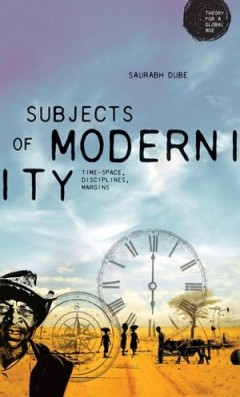
Subjects of modernity Time-space, disciplines, margins
This book explores modernity, the disciplines, and their interplay by drawing in critical considerations of time, space, and their enmeshments. Based in anthropology and history, and drawing on social-political theory (as well as other, complementary, critical perspectives), it focuses on socio-spatial/disciplinary subjects and hierarchical-coeval tousled temporalities. The spatial/temporal tem…
- Edition
- -
- ISBN/ISSN
- 9781526105134
- Collation
- -
- Series Title
- -
- Call Number
- -
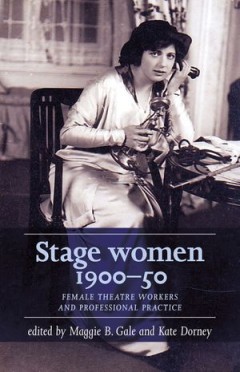
Stage women, 1900–50
Stage women, 1900–50 explores the many ways in which women conceptualised, constructed and participated in networks of professional practice in the theatre and performance industries between 1900 and 1950. A timely volume full of original research, the book explores women’s complex negotiations of their agency over both their labour and public representation, and their use of personal and p…
- Edition
- -
- ISBN/ISSN
- 9781526147271
- Collation
- -
- Series Title
- -
- Call Number
- -
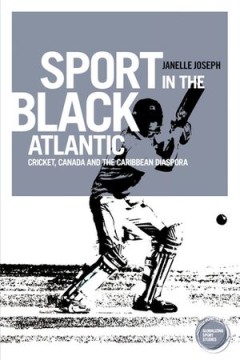
Sport in the Black Atlantic Cricket, Canada and the Caribbean diaspora
This book outlines the ways in which sport helps to create transnational social fields that interconnect migrants dispersed across a region known as the Black Atlantic: England, North America and the Caribbean. Many Caribbean men’s stories about their experiences migrating to Canada, settling in Toronto’s urban and suburban neighbourhoods, finding jobs, returning home for visits, and travel…
- Edition
- -
- ISBN/ISSN
- 9781526104939
- Collation
- -
- Series Title
- -
- Call Number
- -
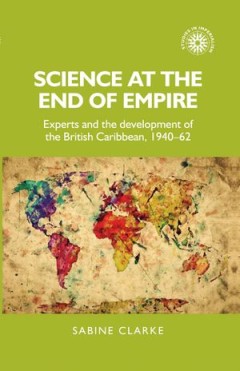
Science at the end of empire
This book produces a major rethinking of the history of development after 1940 through an exploration of Britain’s ambitions for industrialisation in its Caribbean colonies. Industrial development is a neglected topic in histories of the British Colonial Empire, and we know very little of plans for Britain’s Caribbean colonies in general in the late colonial period, despite the role played …
- Edition
- -
- ISBN/ISSN
- 9781526131409
- Collation
- -
- Series Title
- -
- Call Number
- -
 Computer Science, Information & General Works
Computer Science, Information & General Works  Philosophy & Psychology
Philosophy & Psychology  Religion
Religion  Social Sciences
Social Sciences  Language
Language  Pure Science
Pure Science  Applied Sciences
Applied Sciences  Art & Recreation
Art & Recreation  Literature
Literature  History & Geography
History & Geography